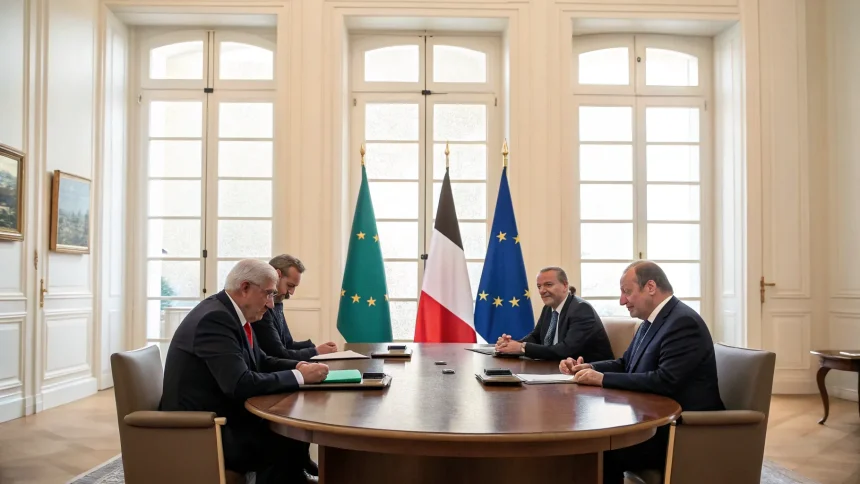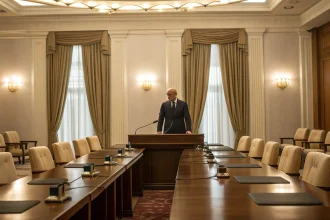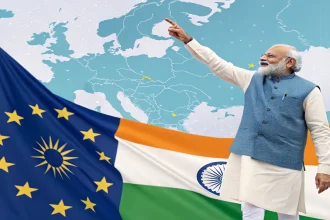Several major European powers have indicated they may formally recognize an independent Palestinian state in the coming weeks, a move that could significantly alter the diplomatic landscape in the Middle East. This potential shift in policy comes amid ongoing conflict between Israel and Hamas, and raises questions about the implications for both Palestinians and Israelis.
The possible recognition by European nations would represent a substantial diplomatic development in the decades-long Israeli-Palestinian conflict. While over 140 countries already recognize Palestine as a state, recognition from major European powers would carry additional diplomatic weight on the world stage.
Diplomatic Implications for Palestinians
For Palestinians, European recognition would provide a significant boost to their long-standing quest for statehood. Such recognition could strengthen Palestinian diplomatic standing internationally and potentially provide greater access to international organizations and forums.
Recognition could also bolster the Palestinian Authority’s position as the legitimate governing body for Palestinians, particularly at a time when Hamas controls Gaza and internal Palestinian politics remain fractured. It might provide the Palestinian leadership with additional leverage in any future peace negotiations with Israel.
However, recognition alone would not change the reality on the ground, where Israeli military occupation of the West Bank continues and Gaza remains under blockade. Palestinians would still face practical challenges to establishing a functioning state with territorial continuity and sovereignty over borders, airspace, and resources.
Israeli Perspective and Concerns
From Israel’s perspective, unilateral recognition of a Palestinian state by European powers would likely be viewed as premature and potentially damaging to its security interests. The Israeli government has consistently maintained that Palestinian statehood should only come through direct bilateral negotiations rather than international recognition.
Israeli officials would likely argue that such recognition rewards Palestinians without requiring concessions on security guarantees, recognition of Israel as a Jewish state, or other issues central to Israel’s concerns. There are also fears that recognition could embolden Palestinian factions opposed to Israel’s existence.
The timing of this potential recognition during an active conflict could further complicate Israel’s military operations and diplomatic position. It might also strain Israel’s relationships with European allies who choose to recognize Palestine.
International Legal and Political Framework
Recognition of a Palestinian state raises questions about borders, as the internationally accepted framework for a two-state solution is based on the pre-1967 lines with mutually agreed land swaps. European recognition would likely reference these borders, though the reality on the ground includes Israeli settlements throughout the West Bank.
Key issues that would remain unresolved even with recognition include:
- The status of Jerusalem, claimed by both sides as their capital
- The right of return for Palestinian refugees
- Security arrangements between the two states
- Water rights and other resource sharing
- The future of Israeli settlements in the West Bank
Regional and Global Impact
European recognition of Palestine could trigger a domino effect, potentially leading other nations to follow suit. This might increase diplomatic pressure on Israel and the United States to engage more actively in peace efforts or make concessions.
The move could also affect the regional dynamics, potentially influencing the positions of Arab states that have normalized or are considering normalizing relations with Israel. These countries might face increased domestic pressure to take stronger positions in support of Palestinian statehood.
For the United States, which has historically opposed unilateral recognition outside of a negotiated settlement, European recognition would create diplomatic challenges in maintaining its role as the primary mediator in the conflict.
While recognition of a Palestinian state by major European powers would mark a significant diplomatic development, it would be just one step in the complex process of resolving the Israeli-Palestinian conflict. The practical implementation of statehood would still require agreements on borders, security, resources, and governance—issues that have proven difficult to resolve over decades of intermittent negotiations.









